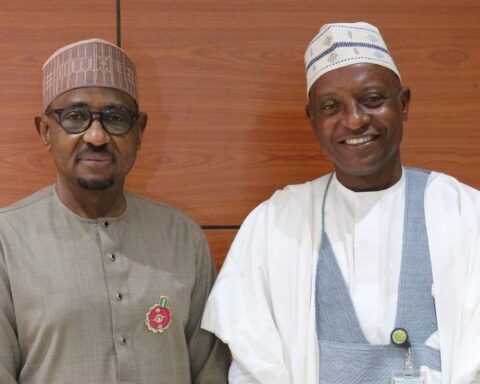“I am sorry, we can’t pay more than ₦100,000,” the teller said with a note of finality in his voice.
Last Thursday, I found myself at the bank, a cheque from my boss in hand. I had come to cash the cheque to address some pressing personal matters. Earlier that morning, it had rained and was still drizzling when I made I set out of the office. Amid the drizzling, my journey to the bank became a bit uncomfortable. Despite the drizzle, however, I made my way to the banking hall, grateful to escape the rain.
As I entered the bank, I was greeted by a security guard dressed in a typical private security attire. “The bank opens at 8 in the morning,” he informed me, and I took a moment to wait in the dimly lit entrance, shivering slightly from the chill of the rain that had dampened my clothes.
Suddenly, the silence was broken by a loud, piercing sound from the bank’s door, signaling that the doors were finally open for business. I pressed the button of the electronic door and was soon ushered into the banking hall, only to be met with complete darkness.
“NEPA has taken the light,” one of the bank’S staff members muttered to herself, frustration evident in her tone. I noticed that many of the employees were illuminating their tasks using the light from their mobile phones, which only added to the chaotic atmosphere.
I hurried to the long counter designated for tellers and gently handed my cheque to one of them. He sported dreadlocks and was dressed in the official bank uniform, just like most of his colleagues. “You can go and sit down, sir,” he said as he examined my cheque under the dim light from his phone. I made my way to a nearby chair, sinking into it heavily, eager to observe the activities unfolding around me.
As I waited, I couldn’t help but wonder why it was taking so long for the electric power supply to be restored.
“Please, can someone talk to the technician? What’s going on?” one of the tellers exclaimed, clearly agitated by the prolonged power outage. After what felt like an eternity—about five minutes—power finally returned. I couldn’t quite tell whether it was a restoration by the power company or the bank’s generator that had kicked in to save them from further embarrassment.
Anxiety grew within me as I anticipated being called to collect my cash. When the teller finally beckoned me over, I thought my moment had come. However, I was taken aback by what he said next: “I am sorry, sir, but we can’t pay this amount. The policy states that a third party cannot withdraw more than ₦100,000.” His tone was evasive, seemingly trying to deflect my shocked expression.
I stood there in stunned silence, unable to formulate a response. A whirlwind of questions swirled in my mind. Why this strict requirement? If I had brought a larger amount to deposit, I was certain the bank would have accepted it without hesitation. This felt like an illogical and unfair policy—one that allowed for larger deposits while imposing a restrictive limit on withdrawals.
I soon realized that this limitation was part of a broader policy enacted by the Central Bank of Nigeria (CBN), which had set minimum cash withdrawal limits at commercial banks at ₦10,000 for individual accounts and ₦100,000 for corporate accounts. Withdrawals below these limits could incur additional fees or might not even be processed. This policy was designed to encourage the use of electronic payment methods and reduce reliance on cash transactions, ultimately aiming to enhance the efficiency of Nigeria’s financial system.
While many view this policy as a necessary step toward modernizing the economy, there are legitimate concerns about its accessibility, particularly in rural areas where digital banking infrastructure is often lacking.
I couldn’t help but question the logic behind a cashless initiative that facilitates larger deposits while simultaneously restricting withdrawals. It seems a fundamental contradiction in terms, leaving me pondering the true nature of progress in our banking system.



























